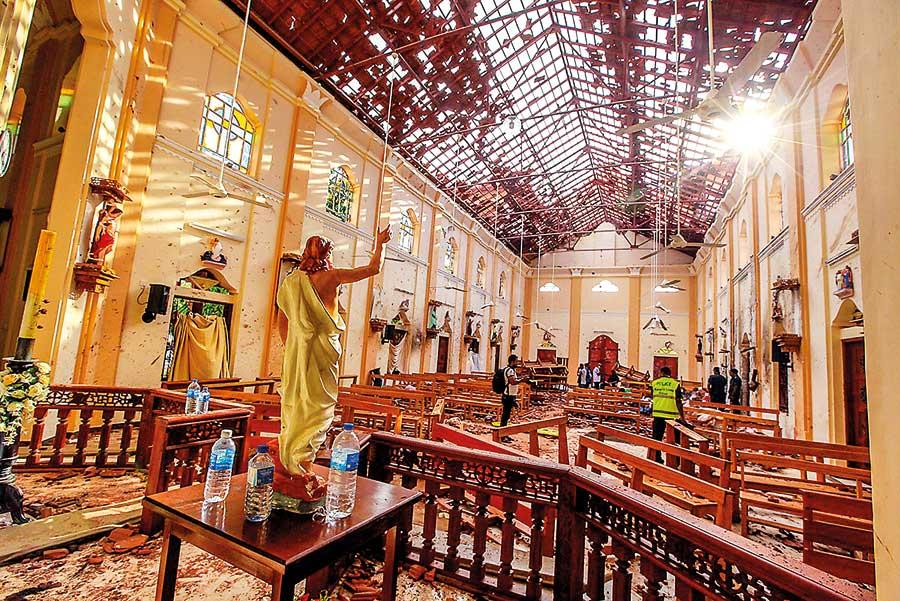Reply To:
Name - Reply Comment

Two Americans sat opposite me on the train from Venice to Verona. It was a relatively long journey, and we struck a conversation. One was Matthew, and asked to be called Mat. The other’s name escaped me. They had not heard of Sri Lanka, and I tried my best to describe our small island nation. It was a random conversation. No names or social media contacts were shared. But to me it was one of the most unforgettable and eye opening experiences. 
Mat played a lead role, challenging my perceptions and convictions. He revealed that he was stationed in Iraq, attached to a medical unit in the US war against the Taliban and Al-Qaeda. I was eager to hear more, having only read news reports and watched videos on the 9/11 attacks and their aftermath.
Mat explained that he graduated from high-school in 2001. “That year we were all shaken by the attacks on the Pentagon and World Trade Centre. Most of us were angry and wanted to fight against the terrorists. So, instead of going to College, I joined the military and was stationed in Iraq,” he said. “I knew there were many arguments about the American presence in Iraq, justifying or condemning it. Looking back at my own experiences, I don’t know how to interpret this incident anymore. There was so much suffering and many deaths. I have watched people dying,” he reminisced.
"People tend to valorize war and often categorize other’s as heroes and villains, or good guys and terrorists. However, we fail to realize that everyone suffers, and there’s no glory in human suffering. Everyone becomes a victim in the end."
As Mat related these experiences, his hands began to tremble. I could see him trying his best to keep his tears at bay. I felt anxious and asked him to stop if the memories made him uncomfortable. I also apologized for my insensitivity. But after gathering himself, he revealed that he was suffering from Post-Traumatic Stress Disorder (PTSD). “I have to undergo therapy and take depression medication, even after years of leaving active war duty,” he said.
This challenged my perceptions in multiple ways. Those who have not personally experienced the violence of war, or dealt with its victims and their trauma, are unaware of its brutality. For me, listening to first-hand experiences of war was initially a source of excitement. Yet, seeing Mat’s reactions made me aware of how, even unintentionally, some can be desensitized to other’s experiences.
Moreover, people tend to valourize war and often categorize people as heroes and villains, or good guys and terrorists. However, we fail to realize that everyone suffers, and there’s no glory in human suffering. Everyone becomes a victim in the end.
"We must learn from our mistakes and rise above the violence and hate that cripples our society"
The ethnic disharmony and war experienced for three decades in Sri Lanka further establishes this fact. Sri Lankan parents lost sons and daughters, children lost parents, and thousands suffered because we were more focused on our differences than similarities. Identifying a fellow human being as the ‘enemy’ based on their ethnicity or religion, and resorting to violence and revenge could be the easy option at the beginning. But the consequences of such actions are unimaginable. And both the parties eventually become victims.
This perspective is a universal sentiment. Humans tend to resort to violence almost habitually. For instance, it has been almost six months since the Easter Sunday attacks. While shock and disbelief were the initial sentiments, many then resorted to fear-mongering and racism. Within a day, a friend from another ethnic or religious group was viewed with suspicion, and became the ‘other’, or the ‘enemy’.
Our own history of war has shown us how dangerous such sentiments can be. Despite ethnic or religious differences, most Sri Lankans want to continue their lives with normalcy, and improve their standard-of-living. But extremists and religious fundamentalists try to disrupt this normalcy with their fanaticism. Using these fanatic ideologies of a minority to condemn or discriminate a majority is unwise.
"Despite ethnic or religious differences, most Sri Lankans want to continue their lives with normalcy, and improve their standard-of-living"
Mat believed he was defending his country and seeking vengeance for his countrymen. However, he ended up a victim of circumstances, disillusioned and unhappy. Those who suffered in Sri Lanka’s war could attest to this. We must learn from our mistakes and rise above the violence and hate that cripple our society.
There are those who understand this, and propagate this message. Former Sri Lankan Cricket Captain Kumar Sangakkara speaking at the Sri Lanka University Games in September said: “Forget the words that divide you. So, smile. Be happy. Talk to each other, whether you speak the language or not, try and connect. Open your hearts. Open your minds. Live life without fear of your neighbour. Live life to the fullest, enjoy it, celebrate it, but together. When you do, you become great. Society becomes great and Sri Lanka becomes great.”
Rather than listening to the propaganda of fear, vengeance and violence, people must give priority to such messages. We must be more sensitive, and understand that if we resort to violence and vengeance, everyone would ultimately suffer.
